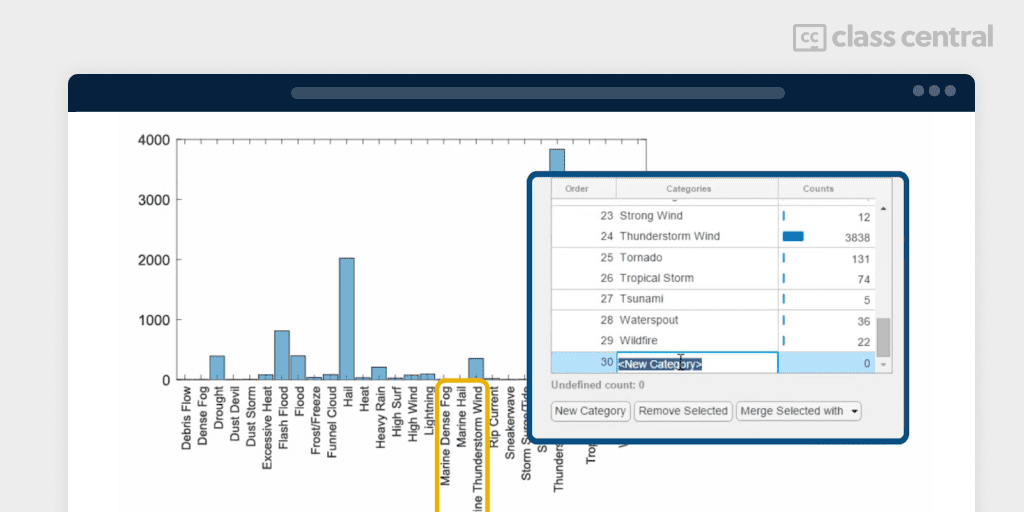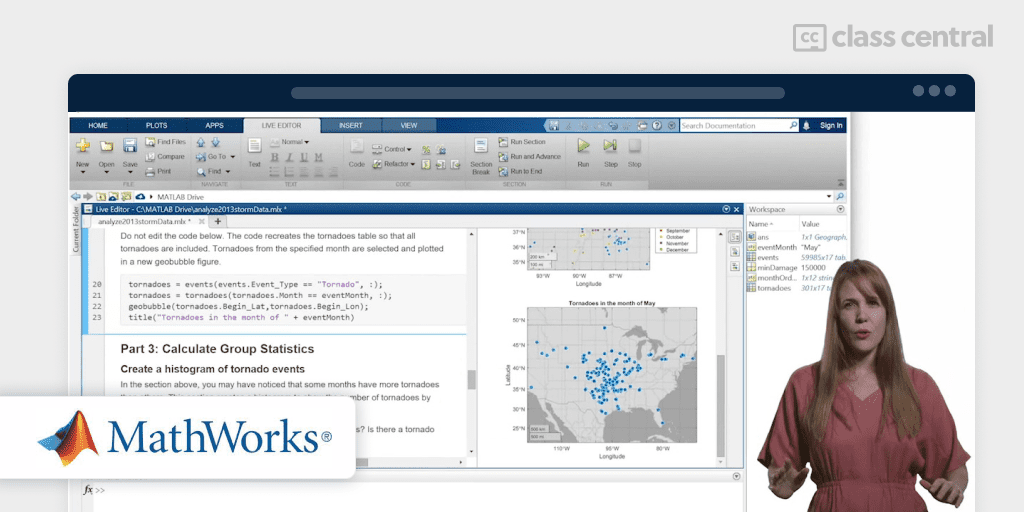Learn How To Think Like A Data Scientist: A Review of Exploratory Data Analysis with MATLAB
This free-to-audit course offered by MATHWORKS with leading experts will help you understand the power of MATLAB in data science with practical and industry-oriented content.
Introduction
Exploratory Data Analysis with MATLAB, offered by MathWorks through Coursera, is one of the most practical and industry-oriented courses that I have taken on the web. This course is part of the Specialization program titled Practical Data Science with MATLAB which consists of four courses on this subject. The whole Specialization will take around five months to complete. The theme of the Specialization is well designed to guide the attendees through the standard procedures to analyze data in several forms.
Why I Took this Course

We live in an era where large amounts of data are generated every day. This data comes from several sources including traffic, agriculture, internet of things, interconnected electrical grids, transport and many other areas. The growing amount of data poses a challenge to humans as our brains are not evolved to compute large chunks of increasingly complex data in a short time. On the other hand, we need a timely and accurate analysis of this data to decide on critical situations and financially important matters. As an electrical engineer, I see how much data is generated from the consumers each hour and how difficult it is for humans to make sense of it on our own. MATLAB, as a powerful computational engine has the capability to help us analyse this data and furthermore, use artificial intelligence to train models in this domain. My specific goal was to develop my skills in data science and use it to help in the analysis of electrical power networks planning. We need the following tasks to be successfully done:
- Predict the behaviour of the consumers in short- and long-term intervals,
- Predict weather patterns to plan renewable energy generation,
- Plan the generation to balance the supply and demand in a cost-efficient manner,
- Analyse the consumers data to identify the network’s bottlenecks, congestion times and points, etc.
History
I found the course in the Coursera platform and further searched for similar ones and the rest of the courses in the specialization in Class Central website. After taking a few sessions, the content and courses proved to be unique in many ways and therefore I continued to pursue it.
Instructor

I have seen the instructors in the course in multiple other online events and courses offered by MathWorks and they have very deep knowledge and experience of the content they present. I see both theoretical and practical knowledge and organization in the content they are offering which makes the course an enjoyable experience.
My Skills
I have a master’s degree in renewable energy engineering and my bachelor is in electrical engineering. I have been a user of MATLAB both in the academy and my job. I currently work as a specialist engineer and use MATLAB as one of our everyday tools for solving different problems including data analysis. I had also taken other data science courses already like the one offered via Edx by MathWorks.
How to be Successful
As per my experience from the course, it is an advantage if the reader has some theoretical background in data science, mathematics and/or engineering. It is also very good if you start applying the knowledge when you learn the material in the course. However, having MATLAB is essential as the online version will not be available after the course is finished.
Editor’s note: Learners are provided access to MATLAB for all the courses.
Certificate
The course offers a certificate like other MOOCs in Coursera for a fee. You can choose to take the course only or the entire specialization. There are other options in Coursera like the Coursera Plus membership where you can have annual access to thousands of courses and get a certificate for them.
The Course
This course is on Class Central’s Best Free Online Courses of All Time list. It’s rich in content and well organized in five weeks. The course covers all the basics of a standard data science task in it. It describes the workflow of data science, how to import the data, how to filter and sort it, how to do the necessary analysis and calculations on the data and finally how to present it to your audience. Participants can also discuss the topics in several forums and ask questions.
Grading
There are several graded and ungraded quizzes and tests. A lot of practice tests are also provided through the MathWorks website for helping in this course. It is required to pass the graded tests in order to be considered for a certificate.
Time Commitment
It is suggested in the course to dedicate 4 hours per week, however, if you want to deeply understand the topics, you need more time to research the topics further and more importantly practice them on your own.
Conclusion
I successfully went through the contents of the course and found it very useful. It actually helped me a lot in understanding the power of MATLAB in data science. I can now use the learned topics in my own work. It is one of the best courses I have taken online.
Editor’s note: Here is an in-depth review for the third course in the specialization, Course Review: Predictive Modeling and Machine Learning with MATLAB by MathWorks written by Magesh John, with a comment from one of the instructors, Brandon Armstrong.







